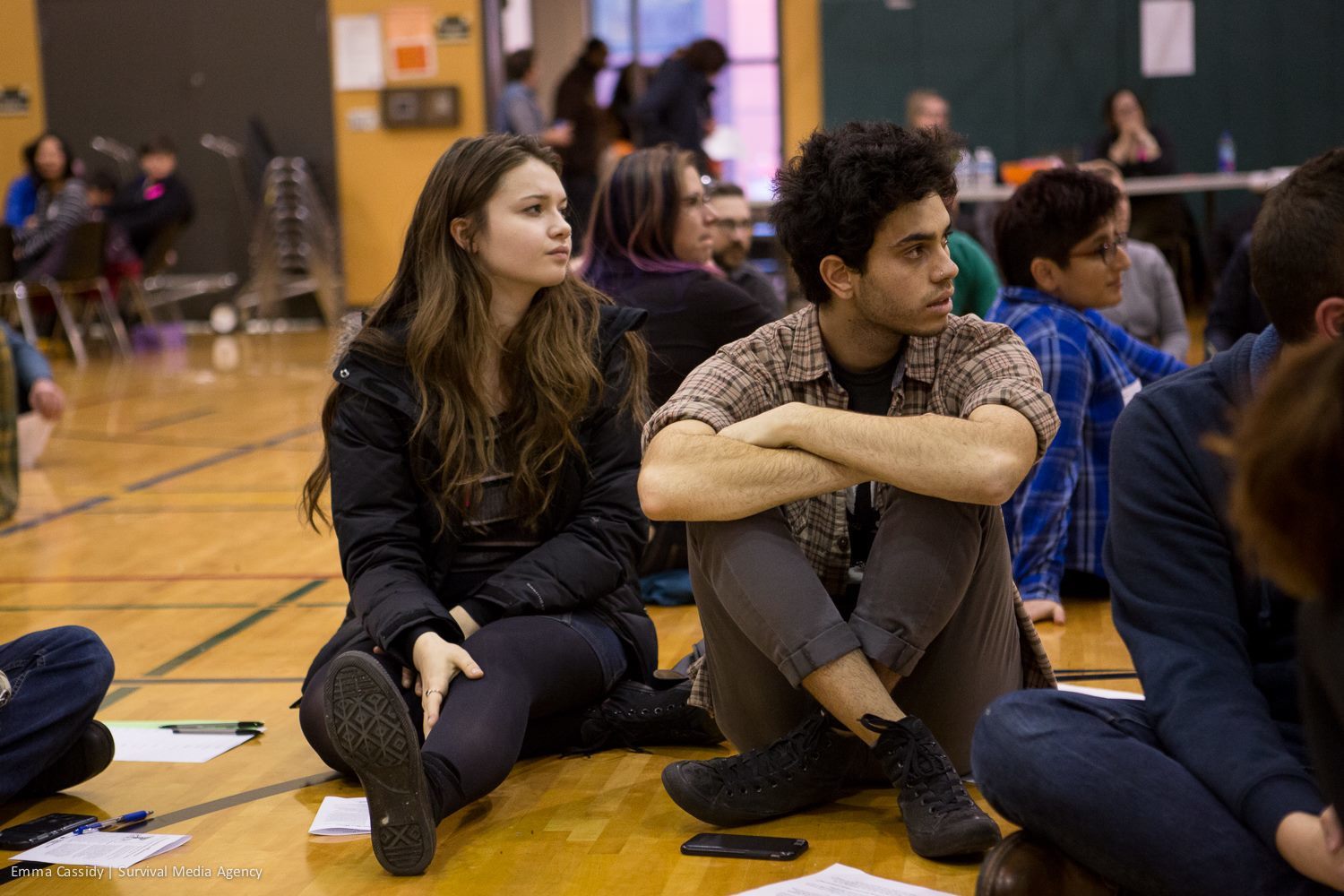As soon as the results were in on election night, Seattle-based activist Kaya Axelsson and several fellow organizers knew they had to do something — fast. While the idea of community-based activism driven by Neighborhood Action Councils (NACs) was a concept Axelsson and her colleagues were familiar with, November 8, 2016 “is the first time we said it out loud to each other,” she says. To prepare for a Trump administration, the feeling was extremely clear: “We need to do this.”
Within days, Axelsson and some 50 Seattleites had formed what’s now been dubbed the Neighborhood Action Coalition, an all-volunteer umbrella for the hyperlocal groups being created across the city to help guard against the President-elect’s agenda—which, so far, could include everything from creating a Muslim registry to denying climate change to defunding all sanctuary cities like Seattle, which effectively shield undocumented immigrants from federal officials.
Five days after election night, Axelsson helped organize a forum where hundreds gathered to discuss their fears (so many, in fact, that the bar where it was held overflowed onto a nearby park). On Sunday, December 4, the second event Axelsson helped with — the Neighborhood Action Coalition’s official kickoff — drew almost as many people, and within minutes, attendees had stopped wanting to talk about their post-Trump feelings and begun pulling up lists of concrete, local actions. “In the first 15 minutes of the event, they were ready to go,” Axelsson says.
Examples include anti-racist education, particularly with regards to Muslim and immigrant communities. One idea, for instance, is a series of workshops that debunk persistent stereotypes about Islam. “The first step for us is going to be fighting that xenophobic rhetoric, especially if we are a sanctuary city and funding does get cut for us,” Axelsson says. “People are going to feel the sting of that” and it could, potentially, create bad feeling, as “it’s easy to be in solidarity when it’s no cost to you.”
One community organizer says he’ll work to create a hate-free zone in Rainier Beach, according to a Neighborhood Action Coalition press release; another says she’ll help create a phone tree so that Seattleites can mobilize when needed. Another idea, says Axelsson, is for activists to be ready, in the event of an Immigration & Customs Enforcement raid, to dispatch large groups of people to the scene in order to “confuse an ICE officer.” Activists are looking to take to the streets on inauguration day, and brainstorming ways to protect their digital communications against federal surveillance. During the second half of Sunday’s event, more than two dozen local nonprofits gathered for a “Community Action Fair,” too, which also offered people concrete ways to get involved.
“I’m excited about gently, but firmly, pushing my community to take more political risk,” says Axelsson, who grew up in Capitol Hill. Solidarity, to her, means action. She’s organized for gender justice, climate change, and racial justice issues in the past; she says she’s “someone who puts their body on the line fairly often for political causes” and is still dealing with the repercussions of being arrested for that. A future with even more arrests in it looks scary. “I fear political persecution,” she says. “If the NSA made a list of troublemakers, I would be on it.” But a bigger fear than that one is that people won’t take those risks, at a time when, she believes, we have to. “We’re pushing a political line… we have to push it forward because [a Trump administration] is going to try to push it back.”
There are now NACs for every Seattle City Council district, and Facebook groups for each, which will soon be posted on the Coalition’s website and Facebook page. Those interested in getting involved — and really, Axelsson says, “all levels of engagement are welcome and necessary right now,” even just bringing food to meetings — could connect to either the main group or their neighborhood’s group. The Coalition has a listserv and an email address (SeattleNAC@gmail.com) that people who aren’t on Facebook can contact, too.
The galvanizing effect of what even our state attorney general has called “unthinkable” is definitely a good thing, Axelsson adds, but she’s loathe to use the term “silver lining.” As “happy as we are to have each other in this time,” she says of herself and fellow organizers, “We’re not happy.” In order to maintain a sense of urgency, which organizers are reminded of constantly, “You have to feel that sadness and that fear.”








